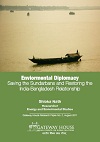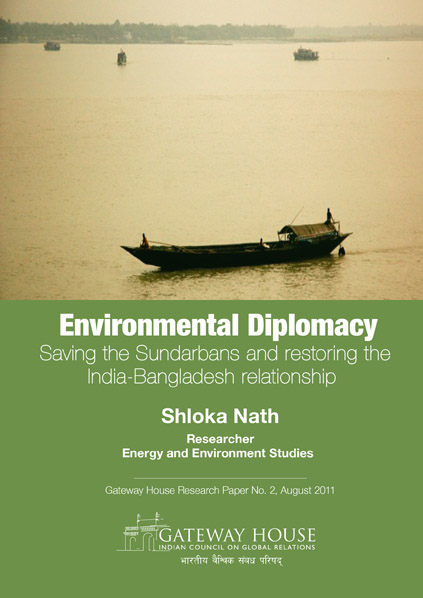Introduction
In January 2010, Jairam Ramesh, then India’s energetic Environment Minister, while on a visit to Kolkata, displayed once again his penchant for the big idea. Together with his counterpart from Bangladesh, he announced both countries were joining hands to protect the Sundarbans from environmental degradation and stated that the proposed Indo-Bangladesh Sundarbans Eco-System Forum, which is currently in the planning stages, will be made functional by the second half of 2011. In October 2010, a draft protocol to be signed by both nations was approved by the Bangladesh cabinet at a meeting chaired by Prime Minister Sheikh Hasina. Using bilateral environmental concerns to foster broader regional cooperation is an innovative idea and the first of its kind for India and Bangladesh. For both countries, this is a unique foreign policy opportunity.
In an exclusive interview with Gateway House in September 2010, Ramesh said, “Environmental diplomacy and environmental cooperation can often be triggers for enhancing broader regional cooperation. It helps to build trust, gets your people working with each other, learning from each other, and breaking down barriers. I hope to see more of this going forward.” The timing of the statement could not have been better; if the aspiration of Jairam Ramesh can be realised, not only will the fractious Indo-Bangla relationship be repaired, but the Sundarbans, the world’s largest mangrove forest spanning a vast territory of over 10,000 sq. km. can also be saved.
Sitting on the sensitive border between India and Bangladesh, the Sundarbans is one of the most endangered eco-systems in the world. Approximately 60 percent lies in Bangladesh and 40 percent in India. The problems that surround it have the potential to advance the relationship between these two important South Asian neighbours; given the magnitude of the difficulties, the converse is equally true.
Related reading:
1. You can read a précis of this paper, here.
2. India-Bangladesh: Saving the Sundarbans
Gateway House published this Op-Ed, by Shloka Nath, on 30 August, 2011. She explains why India and Bangladesh must engage in environmental diplomacy in the vulnerable Sunderbans region to ensure bilateral prosperity.
Live Mint, a leading Indian business newspaper, republished this Op-Ed, by Shloka Nath, on 5 September, 2011, before Prime Minister Manmohan Singh’s visit to Bangladesh. She argues that instead of keeping it on the diplomatic back burner, India and Bangladesh should employ the Sunderban region for regional cooperation.
Rediff News republished this Op-Ed, by Shloka Nath, on 5 September, 2011, before Prime Minister Manmohan Singh’s visit to Bangladesh. She analyses as to how the Sunderban region can be used as a creative spur for India-Bangladesh bilateral prosperity.
You can download the PDF version of this paper, here.
Shloka Nath is Researcher, Energy and Environment Studies, Gateway House.
This paper was exclusively written for Gateway House: Indian Council on Global Relations. You can read more exclusive content here.
For interview requests with the author, or for permission to republish, please contact outreach@gatewayhouse.in.
©Copyright 2011 Gateway House: Indian Council on Global Relations. All rights reserved. Any unauthorized copying or reproduction is strictly prohibited.



